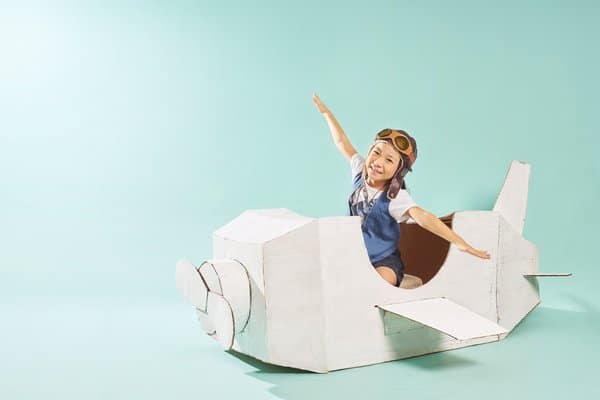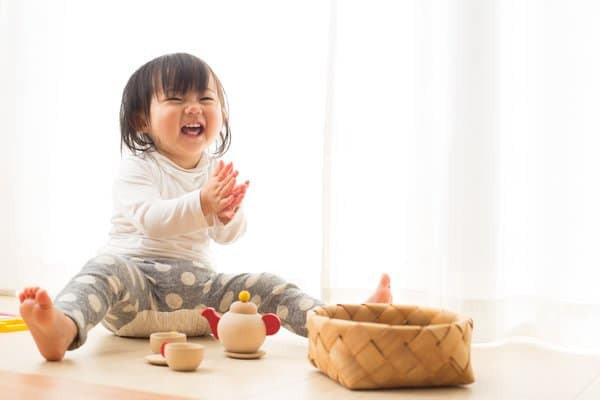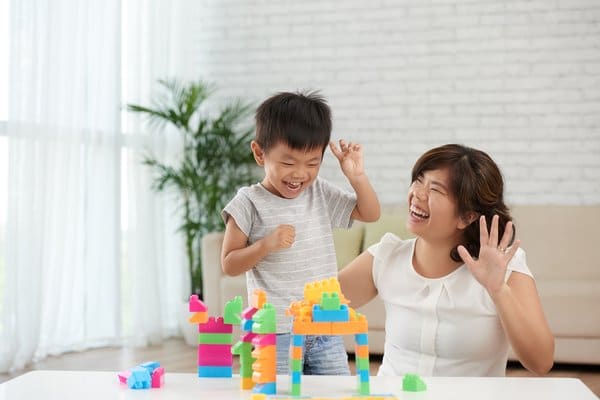Play: Impact on Child Development

Play is an integral part of a child’s development. It helps in their overall development by promoting physical, mental, social and emotional growth. Furthermore, repetitive play can help children master a few different skills. Play can be more constructive when parents get involved and make it interactive.
Benefits of Play
- Children who engage in frequent and high-quality play usually have better memory, process information faster and have better cognitive abilities necessary for learning.
- Play improves verbal and non-verbal communication skills. It allows your children to express their feelings and at the same time for them to learn to respond to the feelings of other children. It also helps them develop empathy.
- Outdoor play improves children’s physical health as well as encourages them to be more focused and less fidgety. Furthermore, outdoor play with other children improves their teamwork and leadership skills.
- It is really important for parents and children to play together and these interactions will aid in your child’s social development in the long run.
- Play with parents also reinforces the fact that the child is loved and valued, which is key for improving his or her self-confidence and emotional well-being.
Play influences the physical, mental, social and emotional growth of children differently as they grow older. Keep reading to find out how you can encourage these various growths through different forms of play!

- Children at this age are good at mimicking and thrive on interactive play. Therefore, it is very important that parents spend time playing with them. This is the age where babies love to copy actions that adults do, and this is a good form of stimulation. Encouraging repetitive actions helps to improve the neurons (or connections) in the brain for that particular action.
- It is important to sit with children and point out interesting features on the toy such as the colours and shapes. You could also describe your baby’s action such as “You just touched the mirror” and describe what happens “Look, that’s you in the mirror”. This will help your baby to relate words with actions and help in language development.
- Interactive play with verbalization is very important. Encourage your baby to vocalize by saying something then pausing, looking at your baby and waiting for your baby to gurgle, coo or babble back. You can also imitate your baby’s vocalizations as a form of encouragement.
- You should encourage active play such as walking, jumping, climbing, pushing and pulling as this will hone their motor skills.
- Allow children to test their skills with toys such as shape sorters and building towers with bricks. Give lots of praise when they do it right.
- Encourage role-playing games such as giving your children a spoon and a bowl so they can pretend to be stirring or cooking something. Taking care of a doll is another example of such play.
- You should encourage play with a cause and effect. For example, toys that light up when you press a switch. Eventually, children will understand that the switch controls the presence or absence of light. This will help with their cognitive development.
- Start playing verbal games and sing songs to encourage your child to sing and follow your actions. As you go about your daily chores at home, you can give your child a running commentary on what you are doing, as their understanding improves vastly during this period.
- At this age, children are walking more. Encourage your child to explore the environment as they become more mobile. However, parents should make sure the environment is hazard-free.
- Wooden blocks are good at this age as they allow children to think of various ways to use them – such as stacking them up, lining them up, banging them together, grouping them according to colours and even counting them.
- You can also introduce large puzzles with only 3-4 pieces as children will start being intrigued about how they fit together.
- Children start becoming quite independent at this stage and love exploring. This should be encouraged to further arouse their curiosity and thirst for exploring and learning. Provide toys and allow children to use their own imagination to play and be creative.
- At this age, children become very assertive. Although they want to be independent and try to do things themselves, they still need some help and guidance.
- Children have a lot of energy and it is important that they have toys and activities that their energy can be channelled to.
- Children are now able to throw a ball better and may even on occasion be able to catch the ball. You can encourage coordination by getting your child to throw a ball into an empty waste-paper basket. You can also encourage children to kick a ball into a specific area, mimicking scoring a goal.
- Take your children to the playground and encourage them to use age-appropriate slides, climbing frames etc. as this will enhance his balance and motor skills.
- Encourage your child to stack blocks as high as they can without falling and encourage them to thread string with beads in order to encourage hand-eye coordination.
- Encourage playing with construction toys and puzzles that stimulate problem-solving skills.
- At this age, children become more agile as far as gross motor skills are concerned. They also have a better sense of balance.
- Outdoor play areas where children have the freedom to experiment with age-appropriate outdoor play equipment such as small slides, swings with secure seating, small climbing frames and ladders. In fact, encourage your child to walk along logs to further enhance balancing skills.
- Encourage interaction with other children by encouraging group play. Play can now be more structured.

While playing with your child takes extra effort and time on your part, remember the significant developmental benefits it gives your child. Playtime is also a great activity for parent-child bonding! Therefore, try your best to encourage in this “child’s play” as much as you can, as your child grows up.

